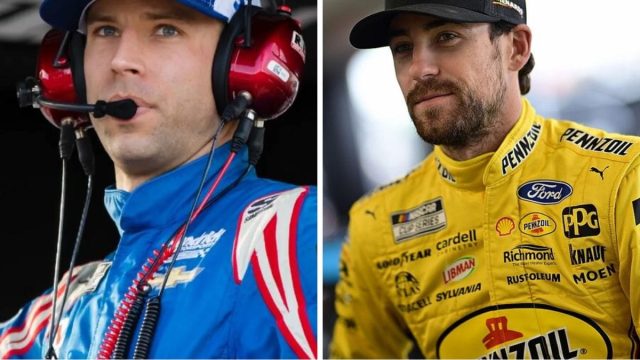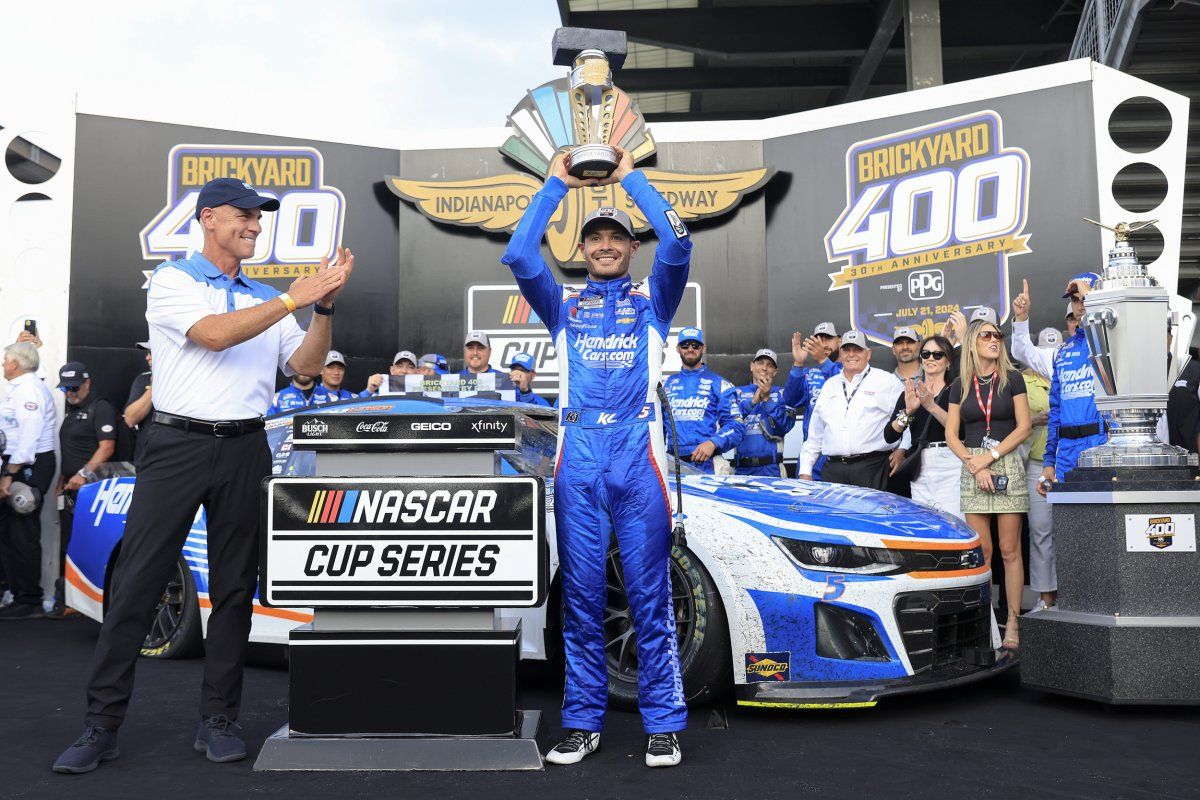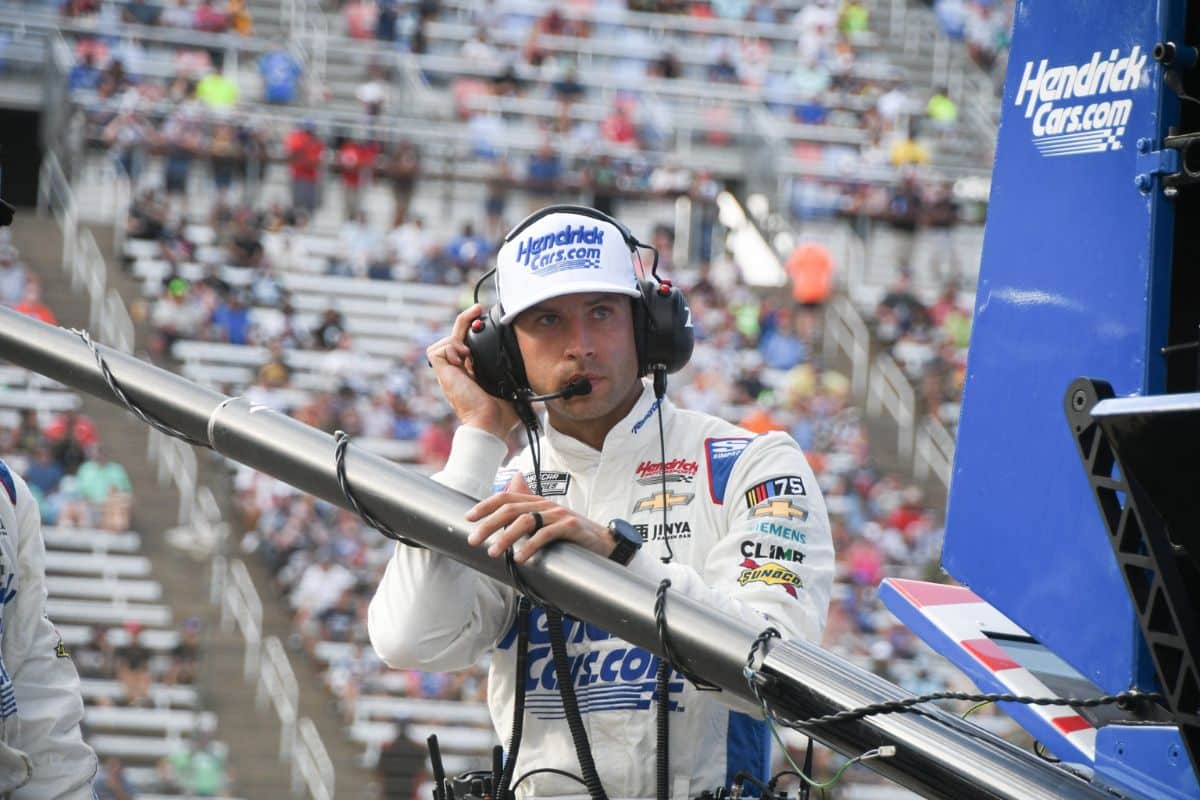Cliff Daniels Dismisses Ryan Blaney’s Accusations: Cliff Daniels’ recent dismissal of Ryan Blaney‘s criticisms regarding NASCAR officiating raises significant questions about the broader implications of such disputes within the sport. By characterizing the matter as ‘not that big of a deal,’ Daniels suggests a commitment to consistency and integrity in NASCAR’s operational framework. However, this stance prompts an examination of whether dismissing these concerns could inadvertently undermine the competitive spirit and trust among drivers. As tensions simmer, the potential consequences of this narrative on fan engagement and driver relations remain to be seen. What does this mean for the future of NASCAR?
Key Highlights
- Cliff Daniels defends NASCAR’s decision-making, asserting that rules are consistently applied across all races despite the inspection during major events.
- He emphasizes that Blaney’s concerns do not reflect a widespread issue within NASCAR’s officiating practices.
- Daniels encourages participants to familiarize themselves with established guidelines to promote accountability and transparency.
- He believes that the integrity of NASCAR’s operations remains intact, dismissing the notion of favoritism as exaggerated.
Kyle Larson’s Historic Win at Indianapolis and Controversy
Kyle Larson’s historic victory at Indianapolis not only marked a remarkable milestone in his career but also ignited a debate regarding perceived favoritism within NASCAR. This win was important not just for Larson, a driver known for his exceptional talent, but also for its implications on the integrity of the sport.
Controversial decisions made throughout the race have drawn scrutiny, particularly from reigning champion Ryan Blaney, who has voiced concerns about an apparent bias favoring the Hendrick Motorsports team. Critics argue that NASCAR’s actions during the race appeared to benefit Larson disproportionately, raising questions about the fairness of competition. The notion of favoritism in a sport that prides itself on equality and meritocracy is alarming for fans and participants alike. This incident has compounded existing tensions within the NASCAR community and has led to broader discussions about governance and oversight in the sport.
Cliff Daniels, Larson’s crew chief, has dismissed Blaney’s allegations as unfounded, suggesting that such claims detract from the legitimacy of Larson’s achievement. However, this dismissal does little to quell the unrest among other teams, who feel marginalized by what they consider preferential treatment.
The implications of this controversy extend beyond individual drivers; they challenge the foundational principles of NASCAR and call into question the transparency of its regulatory environment. As the sport moves forward, it must grapple with these perceptions to retain credibility and uphold the competitive spirit that defines NASCAR racing.
Ryan Blaney’s Frustration and NASCAR’s Controversial Decisions
Ryan Blaney’s frustration with NASCAR’s controversial decisions during the Brickyard 400 highlights the growing concerns over perceived inconsistencies in race governance and their impact on competitive fairness. As one of the frontrunners in the race, Blaney felt the sting of NASCAR’s rulings keenly, particularly when the failure to call for a re-alignment after Brad Keselowski’s fuel misfortune effectively nullified his tactical advantage as the control car.
This decision not only altered the dynamics of the race but also engendered a sense of favoritism among observers, with Kyle Larson capitalizing on the situation to secure a victory.
The implications of NASCAR’s decisions extend beyond the immediate disappointment felt by Blaney; they raise fundamental questions about the integrity of the competitive landscape. When key rulings appear arbitrary, they risk undermining drivers’ trust in the governing body and the fairness that is vital to motorsport.
Blaney’s anger reflects a broader sentiment among drivers who seek assurance that their efforts will not be overshadowed by seemingly capricious officiating.
Moreover, the Brickyard 400’s much-anticipated return was blemished by these controversies, overshadowing the race’s excitement and thrilling potential. As NASCAR navigates these turbulent waters, the need for transparent, consistent decision-making becomes paramount.
The stakes are high, and the credibility of the sport hinges on its capacity to address these concerns and restore confidence among its competitors and fans similarly.
Cliff Daniels Defends NASCAR’s Decision
Cliff Daniels staunchly defended NASCAR’s decision-making process, emphasizing the consistency of its rules across different competitive scenarios. He articulated that the regulations governing race conduct are not arbitrarily enforced but are a longstanding aspect of NASCAR’s operational integrity.
“I mean I understand it being highlighted because of it being this race and the situation because it was front row there’s been so many times in Cup races where we’ve seen that from 5th 10th, 20th it’s no different everybody knows that’s the rule. I understand the question. This isn’t anything new, you know, to completely shut down the race and re-rack because you had a guy pull off in a row. Every other racing series, you fill the role, fill the road, you take the green flag and move on. So I just don’t see it as that big of a concern.”-(cliff)
Daniels acknowledged the heightened criticism during notable races, yet he reiterated that similar situations have occurred throughout the series without equivalent outcry. He pointed out that the rules regarding position and conduct on the track are uniformly applied, regardless of the race context or the drivers involved. This commitment to consistency is essential in maintaining a fair competitive environment.
Daniels’ defense serves to highlight the necessity for all participants to familiarize themselves with the rules, building a culture of accountability. As NASCAR navigates its evolving landscape, leaders like Daniels play a key role in reinforcing the principles that underpin the sport, ensuring that competitive fairness remains at the forefront of its operations.
Brad Keselowski Calls Out NASCAR
Calling attention to the inconsistencies in NASCAR’s officiating, Brad Keselowski raised questions about a questionable ruling during the recent Brickyard 400 that seemed to benefit Kyle Larson. The race concluded dramatically, with Larson securing victory amidst a controversial sequence that has sparked debate among fans and competitors similarly.
The incident in question occurred on the final lap when Ryan Preece crashed, leaving his car immobilized on the track. Conventional wisdom suggests that such a situation would warrant an immediate caution; however, NASCAR’s delay in waving the yellow flag until after Larson crossed the finish line has drawn skepticism.
Keselowski’s remarks, “Hahahaha that’s a caution any other week,” highlight a growing concern regarding the integrity of officiating in NASCAR. His pointed observation emphasizes a perceived inconsistency in how race officials apply rules, particularly in high-stakes scenarios. The timing of NASCAR’s caution has prompted questions about whether it was an oversight or a decision made with ulterior motives.
Keselowski’s critique serves as a reminder that scrutiny of officiating practices is vital in preserving the competitive spirit of NASCAR, ensuring that victories are earned on the track rather than influenced by administrative choices. The implications of this ruling extend beyond a single race, signaling the need for more consistent and transparent officiating standards in the sport.
Fan Reactions and Comparisons to WWE
How might the perceptions of favoritism in NASCAR echo the scripted nature of professional wrestling, as fans draw parallels between the two sports following the recent controversies?
The recent allegations of bias towards Kyle Larson have ignited discussions among fans, leading to comparisons with WWE’s scripted outcomes. The notion that NASCAR may favor certain drivers, particularly Larson—often labeled the “golden boy”—has provoked frustration among fans who feel the competitive integrity of the sport is compromised.
This sentiment was particularly evident in the backlash following Brad Keselowski’s comments about NASCAR’s inconsistent rules. Fans are increasingly vocal about their disdain for the perceived lack of fairness, likening the situation to the theatrical elements of wrestling, where outcomes can appear predetermined and manipulated for entertainment value.
Such comparisons suggest that fans may be struggling to reconcile their passion for the sport with the notion that outcomes might be influenced by external forces, much like a wrestling storyline.
The analogy to WWE highlights a deeper concern about the authenticity of competition within NASCAR. As fans dissect Larson’s controversial “double” attempt and his subsequent leniency from NASCAR, they express their discontent through social media, amplifying calls for transparency and consistency.
News in Brief: Cliff Daniels Dismisses Ryan Blaney’s Accusations
The ongoing discourse surrounding NASCAR’s officiating reflects broader tensions within competitive sports regarding fairness and consistency.
Cliff Daniels’ assertion that Ryan Blaney’s concerns are minimal highlights a commitment to upholding established guidelines, reinforcing the notion that integrity within the sport remains crucial.
As criticisms arise, the responses from officials and drivers similarly indicate a complex relationship between competition and governance.
Ultimately, building accountability while addressing grievances will be vital to maintaining trust among participants and fans.
ALSO READ: Ryan Blaney Opens Up About the Pressures of NASCAR After Brickyard Heartbreak



